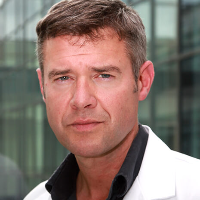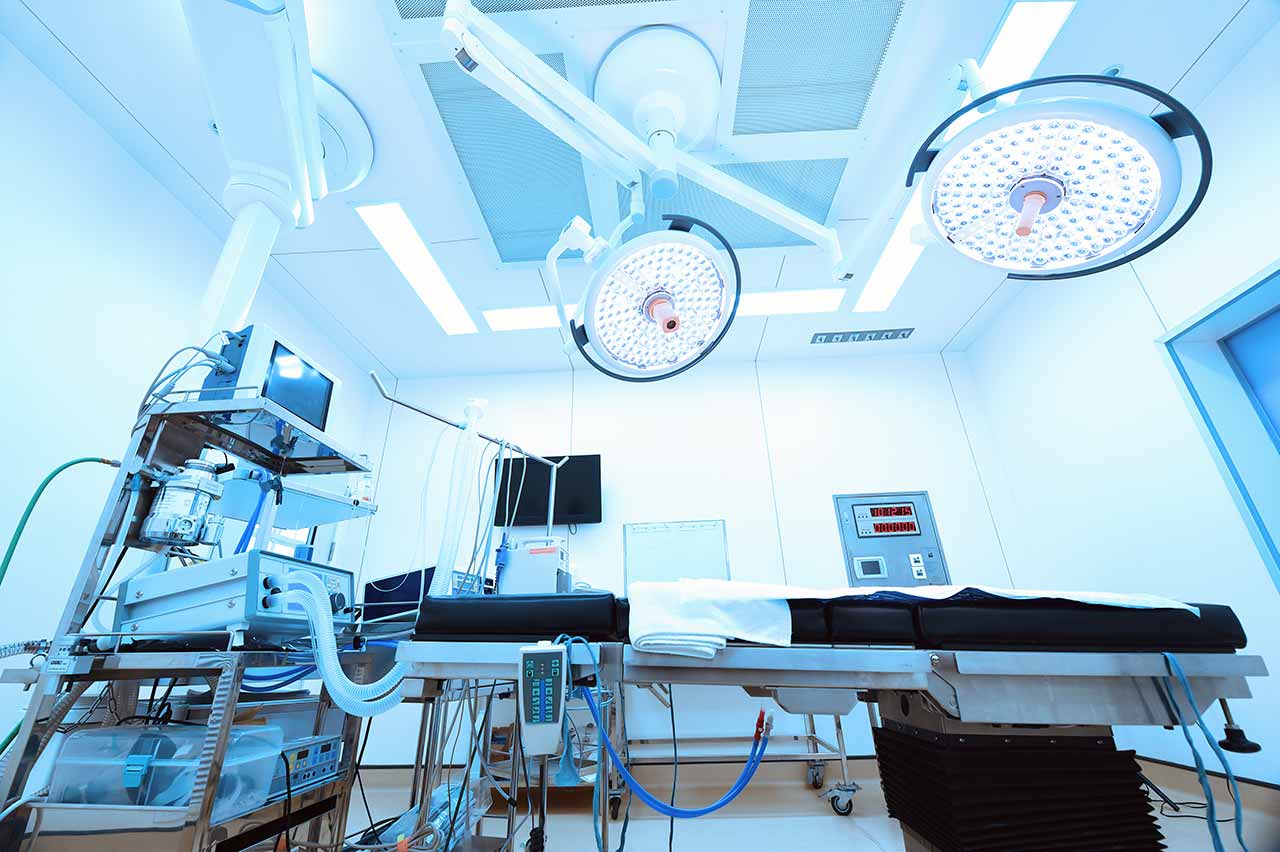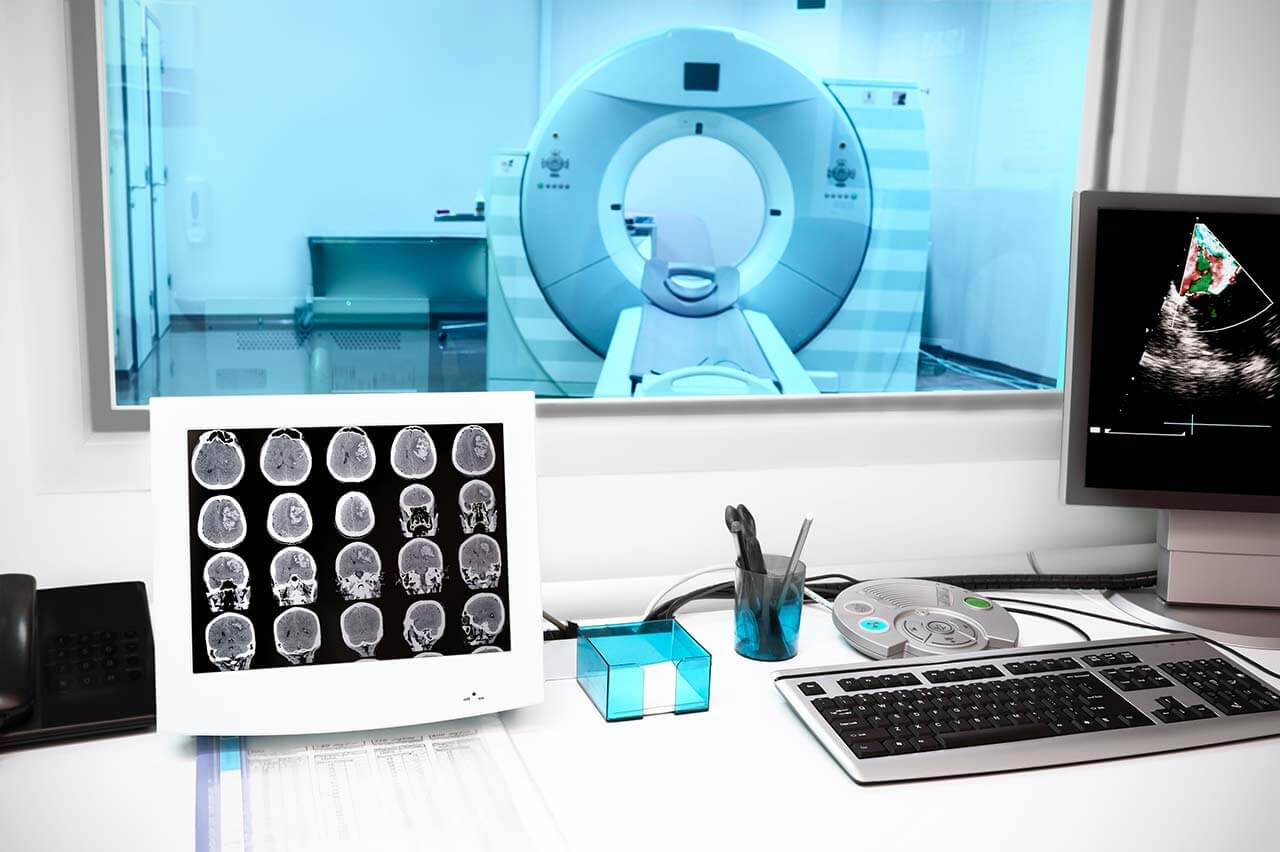
The program includes:
- Initial presentation in the clinic
- clinical history taking
- physical examination
- laboratory tests:
- complete blood count
- biochemical analysis of blood
- Lipid metabolism (HDL/LDL, cholesterol,
triglycerides Lip(a), homocysteine) - blood coagulation analysis (aPTT, PT, INR)
- inflammation indicators (CRP, ESR)
- metabolic status (uric acid, total glucose, HbA1c)
- cardiovascular disease risk markers
- kidney function test (creatinine, urea)
- TSH
- doppler/ duplex receptacles of lower extremities
- angio-MRI from aorta and of lower extremities
- duplex peripheral arteries
- preoperative care
- necrotomy followed by transplantation of skin
- daily wound care
- blood transfusions (if needed)
- symptomatic treatment
- control examinations
- the cost of essential medicines and materials
- nursing services
- full hospital accommodation
- developing of further guidance
Required documents
- Medical records
- Doppler ultrasound/duplex scanning (if available)
- Angiogram (if available)
Service
You may also book:
 BookingHealth Price from:
BookingHealth Price from:
About the department
The Department of Vascular Surgery at the Hospital zum Heiligen Geist Frankfurt am Main offers the full range of medical services in the area of its specialization. It provides modern treatment of diseases of the arteries, veins and lymphatic vessels. The department's team of doctors has in its arsenal both classical open surgical techniques and image-guided interventional catheter-based techniques. The specialists of the medical facility are deservedly proud of their rich and successful experience in the treatment of peripheral arterial occlusive disease, carotid stenosis, aortic aneurysms and varicose veins. In addition, the department's vascular surgeons successfully deal with the treatment of diabetic foot syndrome and Charcot foot. The patients with lymphedema can also get medical care here. Each clinical case is considered on an individual basis, which contributes to the development of the most effective treatment regimen. The department's operating rooms are equipped with the very latest technology, which, combined with the high professionalism of surgeons, makes it possible to restore the health of patients even in the most complex clinical cases. The Head Physician of the department is Dr. med. Jens Hahner.
One of the most common diagnoses in the department's practice is occlusive peripheral arterial disease. Pathology is a stenosis or thrombosis of the arteries of the lower extremities (sometimes – of the upper extremities) due atherosclerosis, which leads to circulatory disorders. The department has all diagnostic examinations to detect pathology: dopplerography, angiography, computed tomography, magnetic resonance imaging, blood pressure measurement, laboratory tests. If the patient has occlusive peripheral arterial disease, the specialists also determine the stage of the pathological process. In the early stages, it is possible to avoid surgical intervention and carry out conservative treatment by giving up a sedentary lifestyle and smoking, as well as prescribing a course of drug therapy to compensate for diabetes mellitus, normalize blood pressure, etc. In more complex cases, surgical treatment may be required. The advantage for the department's patients is the widespread use of low traumatic endovascular interventions. Open surgery is used as a last-line therapy for the treatment of particularly complex forms of occlusive peripheral arterial disease. The department's vascular surgeons have vast experience in such endovascular interventions as thromboendarterectomy, balloon dilatation and stent implantation. With appropriate clinical indications, more radical operations can also be performed: bypass surgery with transplantation of an autologous vein or implantation of an artificial vascular prosthesis (Dacron, PTFE).
The department also provides comprehensive medical care to patients with carotid artery stenosis, which can lead to the development of a stroke, if untreated. Carotid artery stenosis does not cause any complaints, so many people with this diagnosis are not even aware of the presence of pathology. To assess the patency of the carotid arteries, the department's specialists use Doppler ultrasound scanning. In some cases, computed tomography (CT) or magnetic resonance imaging (MRI) may be required. To eliminate the obstruction of the carotid arteries, the department's doctors resort to modern endovascular procedures: eversion carotid endarterectomy, thromboendarterectomy followed by patch plastic surgery and stent implantation.
Another focus of work of the department's specialists is the diagnostics and treatment of abdominal aortic aneurysm – an increase in its diameter by more than 50% compared to the norm or a local protrusion of its wall. The ultrasound scan is performed to make the diagnosis, after which the CT scan may be required. After studying the diagnostic data obtained, the attending physician determines further actions: regular check-ups to control the aneurysm or surgical intervention. Should surgery be required, the possibility of abdominal aortic prosthetic repair is considered.
The department's therapeutic options are complemented by the treatment of varicose veins. During the diagnostic examination, clinical tests and color Doppler imaging are performed. The diagnostic protocol also includes venous occlusion plethysmography and light reflection rheography. The choice of treatment tactics depends on the stage of varicose veins – the pathology has four stages. In the early stages, conservative methods are often enough: wearing compression stockings and giving up a sedentary lifestyle. In the advanced stages, the only effective treatment is surgery. The department's vascular surgeons perform such operations as crossectomy, Venefit procedure and foam sclerotherapy.
The department's range of medical services includes:
- Diagnostics and treatment of occlusive peripheral arterial disease
- Diagnostics and treatment of carotid artery stenosis
- Diagnostics and treatment of abdominal aortic aneurysm
- Diagnostics and treatment of varicose veins
- Diagnostics and treatment of diabetic foot syndrome and Charcot syndrome
- Diagnostics and treatment of lymphedema
- Diagnostics and treatment of other vascular pathologies
The department specializes in the following surgical interventions:
- Thrombendarterectomy
- Balloon dilatation
- Stent implantation
- Bypass by transplanting an autologous vein or implanting an artificial vascular prosthesis (Dacron, PTFE)
- Eversion carotid endarterectomy
- Abdominal aortic prosthetic repair
- Crossectomy
- Venefit procedure
- Foam sclerotherapy
- Surgical treatment of non-healing wounds
- Other operations
Curriculum vitae
University Education and Professional Career
- 1989 - 1990 Study of Chemistry, University Hospital Frankfurt am Main.
- 1990 - 1998 Study of Human Medicine, University Hospital Frankfurt am Main and Johannes Gutenberg University Mainz.
- 01.01.1999 - 30.06.2000 Work in the Department of Cardiothoracic and Vascular Surgery, City Hospital Fulda.
- 01.07.2000 - 30.04.2001 Research Fellow at the Center for Anesthesiology and Resuscitation, University Hospital Frankfurt am Main.
- 01.05.2001 - 31.01.2005 Doctor (advanced training), Department of General and Abdominal Surgery, Hospital Nordwest Frankfurt am Main.
- 01.02.2005 - 30.04.2008 Doctor (advanced training), Department of Thoracic and Vascular Surgery, Hospital Nordwest Frankfurt am Main.
- 01.05.2008 - 28.02.2009 Doctor (advanced training), Department of Vascular and Endovascular Surgery, Hospital Nordwest Frankfurt am Main.
- 01.03.2009 - 31.03.2011 Senior Physician, Department of Vascular Surgery at the Hospital zum Heiligen Geist Frankfurt am Main; Department of Vascular and Endovascular Surgery at the University Hospital Frankfurt am Main.
- 01.11.2011 - 30.06.2019 Managing Senior Physician, Department of Vascular Surgery at the Hospital zum Heiligen Geist Frankfurt am Main; Department of Vascular and Endovascular Surgery, University Hospital Frankfurt am Main.
- 01.07.2019 - 31.12.2019 Acting Head Physician, Department of Vascular Surgery at the Hospital zum Heiligen Geist Frankfurt am Main.
- 01.01.2020 - 30.06.2020 Medical Advisor and Honorary Physician, Hospital zum Heiligen Geist Frankfurt am Main.
- Since 01.01.2020 Work in the Private Practice for Vascular Surgery at Kaiserplatz, Frankfurt am Main.
- Since 01.03.2021 Head Physician, Department of Vascular Surgery at the Hospital zum Heiligen Geist Frankfurt am Main.
Board Certification and Additional Qualifications
- 01.07.2000 Admission to medical practice.
- 21.12.2004 Thesis defense with honors. Subject: "In vivo changes of intramyocardial subpopulations of leukocytes after heart transplantation, in a rat model. An experimental comparative trial of the group that did not receive immunosuppressants and the group that received cyclosporine A".
- 14.03.2007 Board certification in Surgery.
- 13.05.2009 Board certification in Vascular Surgery.
- 04.01.2007 Additional qualification in Emergency Medicine, State Medical Association of Hesse.
- 23.02.2010 Certified Specialist in Endovascular Surgery (certified by the German Society of Vascular Surgery, DGG).
- Since 2013 Examiner in Vascular Surgery, State Medical Association of Hesse.
- 2014 Certified Specialist in Foot Surgery (certified by the German Society for Foot Surgery, GFFC).
- 2016 Certified Specialist in Lymphology (certified by the German Society of Lymphology, DGL).
- 2019 Additional qualification in Phlebology, State Medical Association of Hesse.
Memberships in Professional Societies
- German Society of Surgery.
- German Society for Vascular Surgery and Vascular Medicine.
- European Society for Vascular Surgery.
- Foot Surgery Association.
- German Society of Lymphology.
- German Diabetes Society.
- German Society of Phlebology.
- Working Group on Diabetic Foot Syndrome of the German Diabetes Society.
Photo of the doctor: (c) Hospital zum Heiligen Geist
About hospital
The Hospital zum Heiligen Geist Frankfurt am Main is a modern medical facility offering top-class service. The medical complex is an academic hospital of the Goethe University Frankfurt, so doctors pay due attention to research activities, and also have a perfect command of the very latest diagnostic and therapeutic techniques. The hospital has state-of-the-art equipment, comfortable diagnostic and treatment rooms, as well as cutting-edge operating rooms. The medical facility provides treatment to more than 10,844 inpatients and about 14,582 outpatients every year. In addition, more than 1,157 babies are born in the hospital annually. The medical complex is highly reputable in the region and throughout the country.
The hospital has specialized departments responsible for the treatment of diseases of the gastrointestinal tract and liver, respiratory diseases, diseases of the cardiovascular system, musculoskeletal system and pathologies of the female reproductive organs. The health of patients is in the safe hands of highly professional doctors who have a perfect command of all modern treatment methods in their field of competence. The specialists pay special attention to an individual approach to each clinical case, which allows them to achieve excellent therapeutic results.
Medical care at the hospital is awarded by prestigious quality certificates, including the EndoCert certificate of the German Society for Orthopedics and Orthopedic Surgery (DGOOC), the certificate of the German Hernia Society (DHG), the certificate of the German Cardiac Society (DGK). In addition, the hospital has DIN EN ISO 9001:2015 quality management system, which ensures the control of the work of medical staff, the quality of services provided and assess satisfaction of patients upon the completion of treatment. The hospital also regularly undergoes an assessment of the quality of medical services by specialized state authorities, which publish the results of inspections in the public domain.
The doctors working in the hospital always strive to carry out accurate diagnostics and effective treatment using modern sparing techniques. At the same time, the patient and the humane attitude towards him and his needs are in the focus of attention. The hospital offers a pleasant and friendly atmosphere, in which the patient feels as comfortable as possible and can fully concentrate on restoring his health.
Photo: (с) depositphotos
Accommodation in hospital
Patients rooms
The patients of the Hospital zum Heiligen Geist Frankfurt am Main live in modern and cozy rooms with pastel colors. The standard room furnishings include an automatically adjustable bed, bedside table, wardrobe, table and chairs, telephone and TV. The bed is equipped with a nurse call system. Each patient room has an ensuite bathroom with shower and toilet. The hospital has rooms in which the bathroom is specially equipped for disabled people. The hospital has Wi-Fi access.
If desired, the patient can stay in the enhanced comfort room. Such rooms are additionally equipped with a safe for storing valuables, a mini-fridge and upholstered furniture.
Meals and Menus
The patients of the hospital are offered tasty and healthy three meals a day: breakfast, lunch and dinner. The menu includes standard and dietary dishes, vegetarian dishes and pork-free dishes for Muslims. Coolers with drinking water are available in the corridors and patient rooms.
If for some reason you do not eat all the foods, you will be offered an individual menu. Please inform the medical staff about your food preferences prior to treatment.
Further details
Standard rooms include:
Religion
Religious services are available upon request.
Accompanying person
Your accompanying person may stay with you in your patient room or at the hotel of your choice during the inpatient program.
Hotel
You may stay at the hotel of your choice during the outpatient program. Our managers will support you for selecting the best option.




